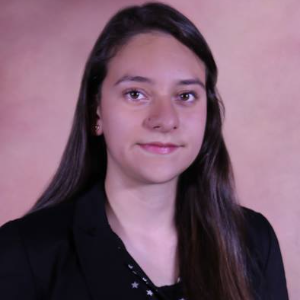Title : How components of different polarities obtained from bidens pilosa l modulate the activity of macrophages and dendritic human cells towards an anti-inflammatory profile
Abstract:
Different immunomodulatory compounds such as fatty acids, terpenes and flavonoids have been identified in medicinal plants such as Bidens pilosa L., which is traditionally used by different communities around the world for its anti-inflammatory, antinociceptive and antioxidant properties. Currently, the modulation of antigen cell presentation (APCs) such as macrophages and DCs with extracts or complex mixtures of compounds of plant origin is a field of interest for the development of new treatments, mainly for cancer and autoimmune diseases due to the ability of these cells to activate or attenuate the adaptive immune response. It is unknown whether the immunomodulatory properties reported in Bidens is associated with the presence of molecules that modulate the activation profile of DCs and macrophages. Taking into account the described immunomodulatory activity of B. pilosa, this study focused on evaluating the immunomodulatory effects of this plant, as well as on the polarization (M0, M1 and M2) of macrophages and the induction or not of maturation of human DCs. Different extracts and fractions of the aerial part of the plant were obtained. Treatments with immunomodulatory activity were identified through induction of changes in the proliferation index of human PBMCs using the MTT technique. Subsequently, it was evaluated whether the selected treatments modulate macrophage polarization, DC activation, and cytokine production or not using multiparameter flow cytometry. The chemical components present in the extracts or fractions that generate the response modulation in the APCs were identified using mass gas chromatography. The petroleum ether extract, ethyl acetate and hydroalcoholic fractions were determined to have low cytotoxicity and modulate cell proliferation and cytokine secretion of PBMCs. Additionally, it was determined that petroleum ether extract induces macrophage polarization towards an M2 profile and generates a semi-mature profile in the DCs. This immunomodulatory activity of the apolar extract of B. pilosa could be related to the presence of low-medium polarity compounds, such as: phytosterol, terpenes and fatty acid esters. These findings demonstrate the specific immunomodulatory effect that the chemical components of the plant could have on antigen-presenting cells.
Audience Take Away Notes:
- This work provides scientific evidence that broadens existing knowledge about the immunomodulatory effect of Bidens pilosa and addresses its anti-inflammatory potential for the development of medicines based on medicinal plants.
- These in vitro studies provide the necessary evidence to continue with in vivo studies that will allow the evaluation of the immunomodulation generated by B. pilosa, with a view to future development of clinical studies that have applications with diseases associated with inflammation such as cancer and autoimmunity.
- Additionally, it shows the importance of continuing to expand knowledge about the anti-inflammatory effect of Bidens pilosa and the possible mechanisms of action that it may have at a biological level.




